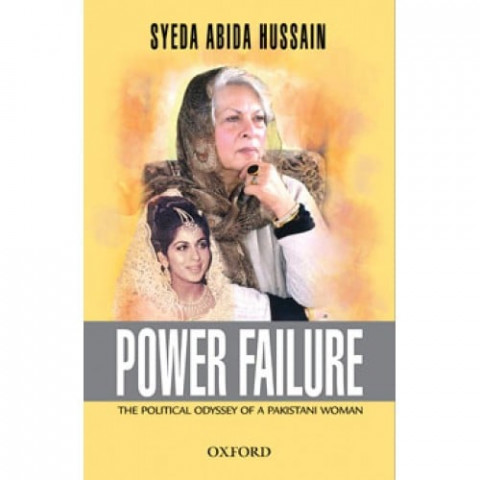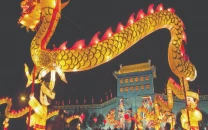Book Review: The political odyssey of a Pakistan woman
Abida offers some first-hand accounts that explain the unexplained.

If you have a day to yourself, with a few skips, chances are you will be able to go from cover to cover. PHOTO: Oxford University Press
If you have a day to yourself, with a few skips, chances are you will be able to go from cover to cover.
Two marriage proposals determined how and where she will be educated. Thanks to Tahir Ayub Khan, son of former president Ayub Khan, she received her early education in Switzerland. But for an early marriage to cousin Fakhar Imam forced, by death of his father Syed Abid Hussain Shah, she could not fulfill her Harvard dream. She made that up by sending her two daughters to the same university. Her father — a member to the first Constituent Assembly and a big land owner in Jhang district of the central Punjab — and mother figure prominently in the narrative and are a major influence in her life. Fakhar Imam’s feats as speaker national assembly also get covered partially. His ‘kinsman’ Faisal Saleh Hayat, who she lost many elections to, is portrayed at length but in an unfavourable light.

Being the only child of her parents put her several steps ahead of many in this country. But it was not entirely without setbacks. Being a Shia, she was faced with threats to her life from the militant a group which according to the narrative had support from some invisible hands. Upon the killing of Maulana Haq Nawaz Jhangvi a firebrand clergy who formed Sipah-i-Sahaba, hundreds of Shias were killed in the district.
She remembers the events from early ‘60s like they have happened yesterday. Her ability to describe those makes them come alive for the reader. Bureaucrats, generals, ambassadors, politicians, dignitaries and common-folks dot the account. Supporters from her constituencies are mentioned with affection and great detail.
It is not just about her personal life and successes but small little things that she encountered while roaming the corridors of power. The account helps you connect the dots in as it is the patchy history of the country. At times the events get unnecessarily long. Some are just touched upon briefly but carry significance. For instance, the author has put in contrast the behaviour of the daughters of two prime ministers during her visit to Russia. Where the twenty-something Benazir Bhutto came across as an arrogant youth whereas the Russian prime minister’s daughter had no qualms even about fixing the water tabs in her hotel washroom.
You may be aware of the rise and fall of Zulfikar Ali Bhutto, but she offers some first-hand accounts that explain the unexplained. She is that person who, since ‘70s to recent times, happened to be there when the major political events took shape. She herself was part of many of them. To some she was privy. In others, she was consulted in person by the high-and-mighty. She remembers a ‘rosy-cheeked’ Nawaz Sharif standing outside the then governor of Punjab’s.
Despite being in awe of of ZAB for most part of her life, she thought him to be gender-biased when the latter, ignoring her, gave the party ticket to an unlettered man. You may find it amusing to read how she was discriminated against for being a woman parliamentarian when male members found it below themselves to even sit beside a woman. She also refers to a time when the ‘establishment’ briefly considered her and Fakhar Imam for being a check to Benazir Bhutto before they finally went for Nawaz Sharif giving credence to the perception about Sharif being a military man- at least initially.
There are quite a few factual mistakes in the narrative which are too obvious to be missed. The book could also do with better editing. Advice is always written as advise, hear as here, compliment as complement. She thought Robert Frost had written, “many miles to go before I sleep.”
One lesson that she learnt was that “in politics it is prudent to forgive but never sensible to forget.” From the soft account of individuals who were harsh on or unjust toward her it seems she has forgiven them all. Barring few mistakes, from the immaculate details that she was able to recall, it drips she has not forgotten.
For those interested in the political and diplomatic history of the country, this book makes for a wonderful read.
Published in The Express Tribune, February 1st, 2015.
Like Life & Style on Facebook, follow @ETLifeandStyle on Twitter for the latest in fashion, gossip and entertainment.



















COMMENTS
Comments are moderated and generally will be posted if they are on-topic and not abusive.
For more information, please see our Comments FAQ